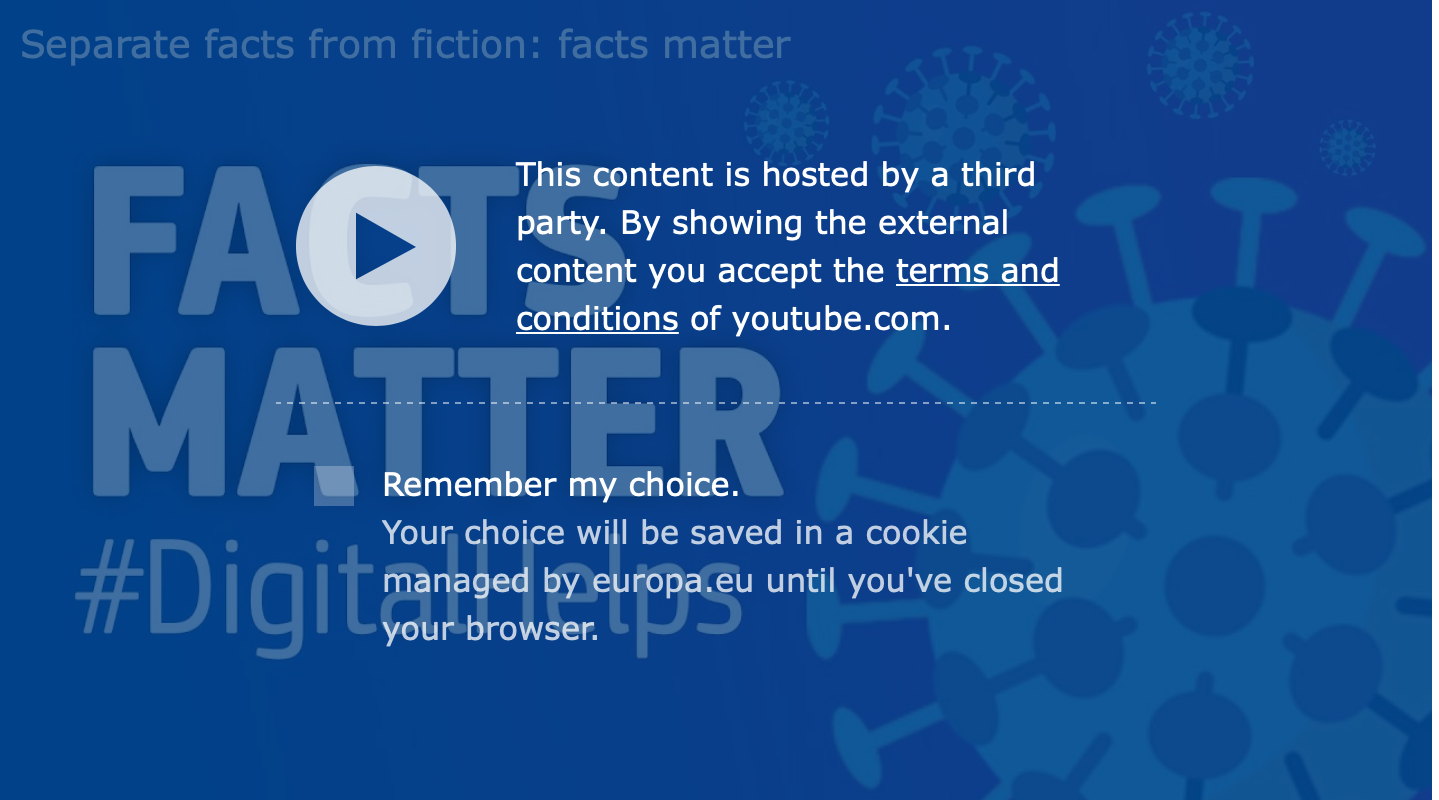Disinformation is 'verifiably false or misleading information created, presented and disseminated for economic gain or to intentionally deceive the public'. Misinformation is verifiably false information that is spread without the intention to mislead, and often shared because the user believes it to be true.
The spread of both disinformation and misinformation can have a range of consequences, such as threatening our democracies, polarising debates, and putting the health, security and environment of EU citizens at risk.
Large-scale disinformation campaigns are a major challenge for Europe and require a coordinated response from EU countries, EU institutions, social networks, news media and EU citizens. The Commission has developed a number of initiatives to tackle disinformation:
- the Code of Practice on Disinformation lays out a set of worldwide self-regulatory standards for industry;
- the European Digital Media Observatory is a European hub for fact-checkers, academics and other relevant stakeholders to support policy-makers;
- the action plan on disinformation aims to strengthen EU capability and cooperation in the fight against disinformation;
- the European Democracy Action Plan will develop guidelines for obligations and accountability of online platforms in the fight against disinformation;
- the Communication on ‘tackling online disinformation: a European approach’ is a collection of tools to tackle the spread of disinformation and ensure the protection of EU values;
- the COVID-19 monitoring and reporting programme, carried out by signatories of the Code of Practice, acts as a transparency measure to ensure accountability in tackling disinformation.
Source

